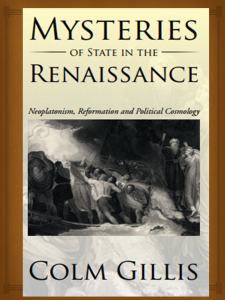This book is an investigation into socio-political theory and practice. Inspired by the humiliating circumstances of Ireland’s public disgrace that has unfolded from 2008 down to the present day, it does not purport to provide an exposition of this crisis, whose ramications will probably be felt long into the future. Rather, it probes historical circumstances that seeded the birth of modern states.
Notwithstanding the indirect nature of its applicability to the current situation, such an analysis is crucial for an
understanding of how states function in the present day.
Before 2008, I had little interest in politics, occupying no more than the role of a passive spectator of the ambitious and furthermore was a believer in the fundamentals of progress, most famously encapsulated in Ireland’s case
by the sobriquet of the ‘Celtic Tiger.’ Money papered over the cracks that opened as a result of the rapid liberalization of Ireland in the lasl quarter of the last century, with major social problems noticeably increasing during the
Celtic Tiger years.
Undoubtedly, many were aware of this, but as a nation we ignored it and traded security, not to mind dignity and culture, for luxury, an easy bargain to grab when a country is not in the throes of an existential crisis. Social problems are much the same now as they were before the crash and when the golden web was unspun the fragile structure was not so much revealed. Its shoddiness merely became more apparent.
Mysteries of State in the Renaissance: Neoplatonism, Reformation and Political Cosmology Description:
Government decisions shape our lives, but how much do we know about the foundations of modern political thought?
Theorists in the Renaissance constructed the ideological world we inhabit. They claimed to have mastered natural secrets whilst also promising perpetual, flawless and scientifically demonstrable rule. Selective applications of artistic themes, religious symbols, imperialistic concepts and spells woven by ‘intellectual magic,’ helped advance sovereign rule.
By mid-17th century, these speculations were spinning an elaborate web of control. If we wish to understand myths of our current age, the intellectual mystique enshrouding origins of the modern State must first be revealed.



